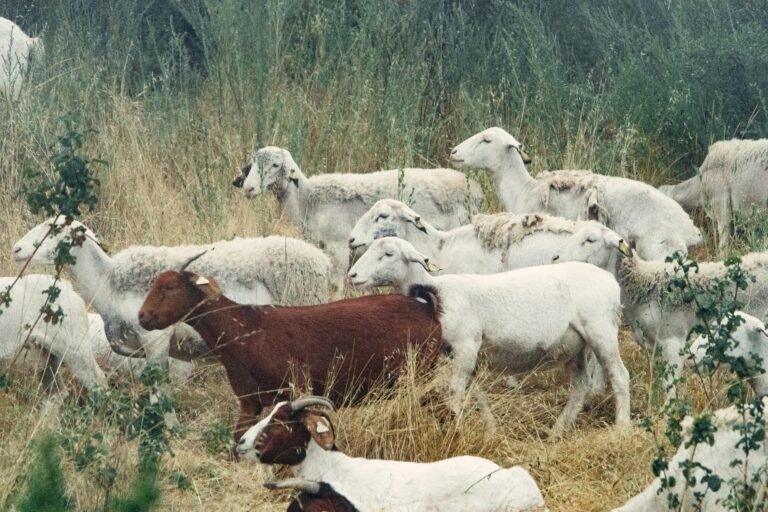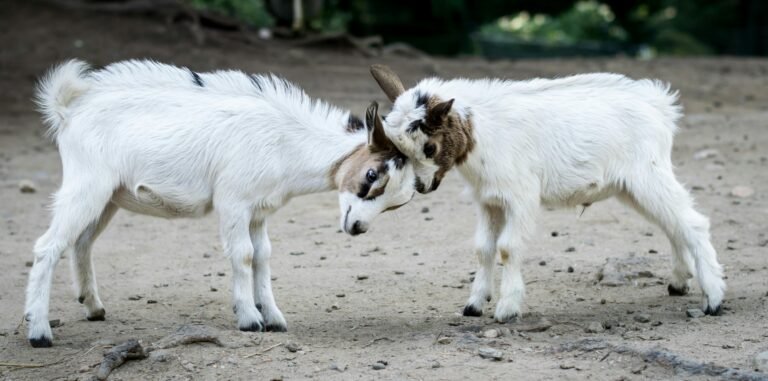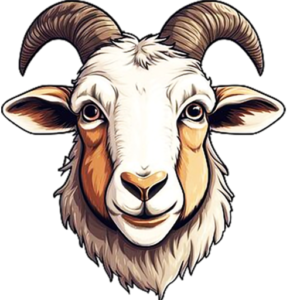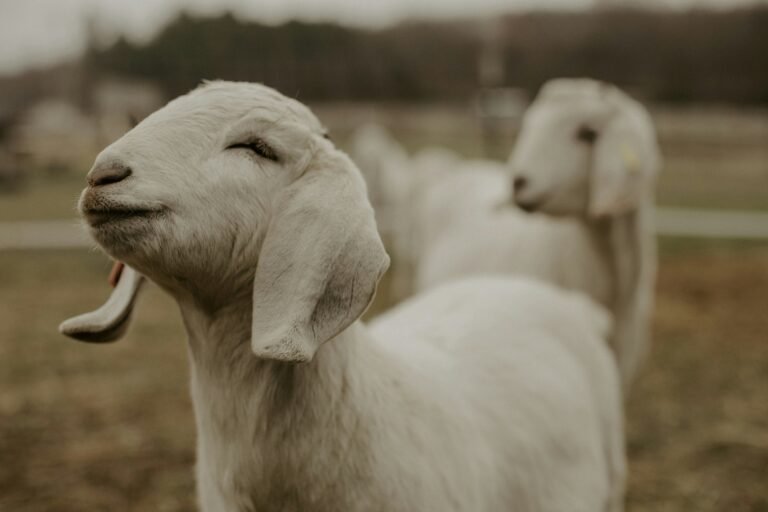
Goat Coughing: Top Causes, Cures and When to Contact Vet
Coughing in goats is a situation that every goat owner might face at some point. While goats are generally robust animals, they are not immune to respiratory issues that can lead to coughing. Understanding the causes of goat coughing, knowing the treatments, and recognizing when to call the vet are crucial aspects of maintaining a healthy herd. This article delves into these topics, offering a comprehensive guide to managing goat coughing effectively.
Understanding the Causes of Goat Coughing:
Coughing in goats can be triggered by various factors, and identifying the root cause is essential for proper treatment. Here are the primary causes:
1. Respiratory Infections:
Respiratory infections are a common cause of coughing in goats. These infections can be triggered by sudden weather changes, exposure to drafts, or overcrowded living conditions that compromise the goat’s respiratory health. Pneumonia is a primary concern and can be particularly severe if not addressed promptly. Other stressors, such as transportation or changes in diet, can weaken the goat’s immune system, making them more susceptible to infections.
To effectively manage respiratory infections, it’s crucial to identify the specific pathogen causing the infection. A veterinarian can conduct diagnostic tests to determine the appropriate course of action, which may include administering targeted treatments such as antibiotics or antifungals.
2. Internal Parasites:
Internal parasites, especially lungworms, can infest a goat’s respiratory system, leading to persistent coughing. Regular fecal testing and deworming are essential components of goat care to keep these parasites in check. Overuse of certain dewormers can contribute to parasite resistance, so it’s important to work closely with a vet to establish a deworming schedule tailored to your herd’s specific needs.
In addition to deworming, practicing rotational grazing and maintaining a clean environment can reduce the risk of parasite infestation, further protecting your goats from respiratory issues.
3. Environmental Irritants:
Environmental factors such as dust, mold, and poor air quality in a goat’s living space can irritate their respiratory tract, resulting in coughing. Ensuring adequate ventilation, regularly cleaning bedding, and minimizing dust sources are vital preventive measures.
Using fans to maintain proper airflow in barns or shelters can significantly reduce the concentration of irritants. Additionally, identifying and eliminating mold sources, such as damp hay or feed, is crucial in creating a healthy living environment for your goats.
4. Allergies:
Goats, like humans, can develop allergies to specific substances in their environment, leading to respiratory distress and coughing. Common allergens include certain plants, pollen, or dust mites. Identifying and removing these allergens from the goat’s surroundings is crucial for symptom relief.
In some cases, antihistamines prescribed by a veterinarian may be necessary to manage allergic reactions effectively. Regular monitoring and prompt action are key to maintaining your goat’s respiratory health and overall well-being.

Effective Treatments for Goat Coughing:
Once you’ve identified the cause of your goat’s coughing, it’s time to consider the appropriate treatments. Here are some effective strategies:
1. Isolate the Affected Goat:
Isolating the coughing goat is essential to prevent the potential spread of contagious infections to the rest of the herd. This isolation also allows for closer monitoring and targeted treatment. Providing a separate, well-ventilated space with clean bedding can minimize stress and aid in the recovery process.
2. Provide Adequate Ventilation:
Ensuring proper ventilation in the goat’s living area is crucial for minimizing respiratory irritants. Adequate airflow helps disperse dust and prevents the buildup of harmful pathogens. Installing fans or adjusting the barn structure to optimize natural ventilation can significantly improve the overall respiratory health of your goat herd.
3. Administer Deworming Medications:
Regular deworming is a cornerstone of goat health, and it becomes even more critical when addressing coughing associated with internal parasites. Working closely with a veterinarian, you can develop a deworming protocol tailored to your specific herd needs and local conditions. Regular fecal testing can help track the effectiveness of the deworming program and ensure that parasites are kept in check.
4. Offer Nutritional Support:
A well-balanced diet is essential for maintaining a goat’s overall health and supporting its immune system. Ensuring access to clean, high-quality forage and supplementing with appropriate minerals can bolster their nutritional status. In cases of illness, providing extra care, such as offering easily digestible foods and electrolytes, can aid in the goat’s recovery.
5. Use Antibiotics or Antifungals:
When a bacterial or fungal infection is identified as the cause of coughing, a veterinarian may prescribe antibiotics or antifungals. Administer these medications as directed, and ensure the full course is completed to prevent the development of antibiotic resistance. Regular follow-ups with the vet can help monitor the goat’s progress and adjust treatment as needed.

When to Call the Vet
While some cases of goat coughing can be managed with at-home treatments, certain pivotal indicators necessitate the immediate attention of a veterinarian. Here are the signs to look out for:
1. Persistent Coughing:
Persistent coughing lasting more than a few days warrants veterinary attention. A thorough examination can help to identify the underlying cause and initiate appropriate treatment.
2. Labored Breathing:
Labored or rapid breathing is a sign of respiratory distress that requires immediate veterinary intervention. This could be indicative of a severe respiratory infection or pneumonia, both of which demand prompt professional care.
3. Loss of Appetite and Lethargy:
A sudden loss of appetite and lethargy can signal a systemic issue affecting the goat’s overall health. It’s important to consult a veterinarian promptly to assess the situation and determine the appropriate course of action.
4. Abnormal Discharge:
Abnormal nasal or ocular discharge accompanying coughing may indicate an infection that requires veterinary attention. Providing details about the discharge’s color, consistency, and any associated symptoms can aid the vet in making an accurate diagnosis and prescribing effective treatment.
Conclusion: Goat Coughing Causes and Cures
Goat coughing is a multifaceted issue that requires a comprehensive approach to prevention and treatment. By understanding the various causes, implementing proactive measures, and promptly seeking veterinary assistance when needed, goat owners can ensure the well-being of their herd. Regular communication with a veterinarian, combined with attentive management practices, is key to maintaining the respiratory health and overall vitality of your goats. As the saying goes, a healthy goat is a happy goat.
At Goaty Pedia, we’re passionate about all goat things! Our mission is to be the ultimate resource for goat enthusiasts, breeders, and caretakers who want to learn about and care for these remarkable animals. Thanks for visiting.
Web Crew © 2024 All Rights Reserved.

